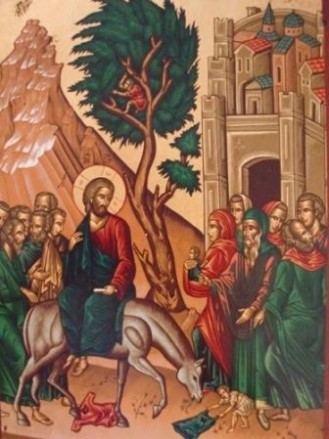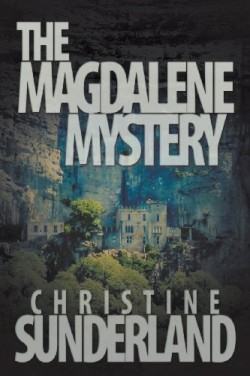by Christine Sunderland @chrisunderland
Today is Palm Sunday, the day we recall, and re-enact, Christ’s entrance into the Holy City of Jerusalem, riding a lowly colt, as was prophesied. Many lay palm branches before him,  crying “Hosanna in the highest!” As we follow him through the gates of Jerusalem, we invite our readers to enter the gates too, into our stories of redemption.
crying “Hosanna in the highest!” As we follow him through the gates of Jerusalem, we invite our readers to enter the gates too, into our stories of redemption.
Our gates of Jerusalem are the words and pages of our fiction. We tell of the New Jerusalem – Heaven – and open the doors to the narrow way which is the path of life through death and into life again. We hope they will come in from the cold and arid world outside the gates. We hope they will say yes to our invitation, to step with us, into a city of words offering hope to all mankind.
In this way a novel is an invitation to travel deeper into the meaning of life. Jerusalem holds that meaning – the suffering and the trials and the path to Golgotha and death – for it encounters the human condition, bodies inhabited by souls, fallen from grace.
And in this City of Jerusalem, we wrestle with betrayal, with last suppers, with offering ourselves to God in a garden in the dark of night, until we must be and do that which we were meant to be and do.
The story of Jesus Christ’s last days is called Holy Week, a week re-enacted by millions of faithful. They live in the reality of history, the reality of redemption, the reality of the choice of salvation, and the reality of hope in a world of despair.
Just so, we travel through our novel’s pages, traveling through life to death, a journey of time given to each one of us. As we follow in the footsteps of Our Lord’s last days, we consider our own footsteps, our own last days, and whether we have invited our readers into such a journey of salvation in our stories.
In many ways this last week leading to crucifixion and resurrection connects the Judaic world with the soon-to-become Christian one. For Christ is of both, born in one and reborn in the other. In the Last Supper, a Jewish seder feast before Passover, a transformation occurs, as Christ himself becomes the fourth cup of the supper, emptied for us.
Christian fiction writers invite readers to enter Jerusalem, through the gates of life. @Chrisunderland Click To TweetIn a similar way, Christian fiction writers are given the opportunity to link the world of past sin with the world of future salvation. We as human beings have one foot in a fallen world of suffering and pain and one foot in a world of joy and love. We must experience the suffering in our pages, for only through facing reality can we honestly bare our sins and be cleansed. Only through the reality of our fallen humanity can we be washed in the blood of the Lamb. Only through confession and repentance can we enter the gates. Only then can we say yes to our redemption and be saved.
In my novels I pull the reader into the saving graces of Christ by showing the action of God among us, within us, for us. As we see the power of the Holy Spirit working through metaphor, symbol, and sacrament, we draw closer to the gates of our own souls. We know we know nothing and yet we know we know everything, for the mystery of life is just that – a mystery – and one that can only be understood standing before those holy gates of Jerusalem, the holy City of Life, of Earth and Heaven.
In my novel, The Magdalene Mystery (OakTara, 2013, to be reissued by Enroute Books) the heroine, Kelly Roberts, is on just such a quest to find the truth of Mary Magdalene. Who was Mary and what did she see on that first Easter? We follow Kelly’s journey through the pages, uncovering clues in Rome that will open the gates of her mind, turning doubt into faith. We follow Kelly to the south of France where Mary Magdalene is said to have spent her last years, witnessing to the resurrection.
In this way Christian fiction writers often use the plot form of the quest, the search for answers, clues not only to the mystery set before the characters but clues to the mystery of life itself. On a quest, much can be revealed, dangers met, sufferings transformed, and sacrifices made sacred.
For we are called to write of the human condition. We are called to write of the gates that open to those who seek. We ask only that our readers knock on these great doors and enter the City, for as Our Lord said, “Ask, and it shall be given you; seek, and ye shall find; knock, and it shall be opened unto you” (Matthew 7:7, KJV). Our suffering characters ask and seek and knock.
Through words on pages, readers enter the gates of Jerusalem.
 Christine Sunderland has authored seven award-winning novels: Pilgrimage, set in Italy, Offerings, set in France, Inheritance, set in England, Hana-lani, set in Hawaii, The Magdalene Mystery, set in Rome and Provence (all Oaktara), The Fire Trail (eLectio), set at UC Berkeley, and Angel Mountain (Wipf and Stock), set on Mount Diablo, east of Berkeley. She serves as Managing Editor for the American Church Union (www.AmericanChurchUnion.com). Visit Christine at www.ChristineSunderland.com (website and blog), Facebook, and LinkedIn.
Christine Sunderland has authored seven award-winning novels: Pilgrimage, set in Italy, Offerings, set in France, Inheritance, set in England, Hana-lani, set in Hawaii, The Magdalene Mystery, set in Rome and Provence (all Oaktara), The Fire Trail (eLectio), set at UC Berkeley, and Angel Mountain (Wipf and Stock), set on Mount Diablo, east of Berkeley. She serves as Managing Editor for the American Church Union (www.AmericanChurchUnion.com). Visit Christine at www.ChristineSunderland.com (website and blog), Facebook, and LinkedIn.
